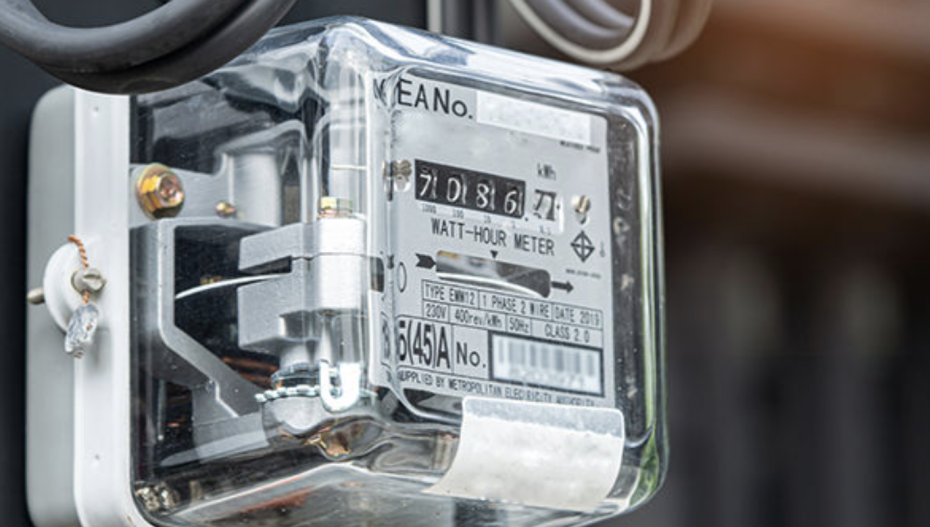Residents of Vadodara and elsewhere are protesting against the newly installed Gujarat Urja Vikas Nigam Limited’s (GUVNL’s) pre-paid smart electricity meters.
Protests began in Vadodara on May 14, with people claiming that they had been “overcharged” on a daily basis, since the installation of smart meters. Several residents also complained of frequent disruptions in power supply when their recharged balance turned into “negative balance” after touching Rs 300 (more on this later).
Residents said they were “given no choice” at the time of installation, and even threatened with a penalty of Rs 10,000 for any delay in getting smart meters. Many also complained that these meters posed problems for those who were not smart phone users. They gathered at the offices of GUVNL subsidiary MGVCL, shouted anti-administration slogans, and demanded the re-installation of the old meters.
The protests soon spread to Surat, Rajkot, Jamnagar, Anand, Godhra and Dahod, snowballing into an election issue, with the INDIA Alliance partners Congress and AAP backing the unrest, even as people have approached the administration seeking an immediate suspension of the smart meter project.
GUVNL officials say that the only difference between conventional digital electric meters (widely used, across India) and smart meters is the ability to “communicate”.
“Both use the same multiple algorithms for computing electricity consumption, therefore, [smart meters] will have no effect on one’s monthly tariff if consumption does not change,” an official of the Madhya Gujarat Vij Company Ltd (MGVCL), the discom for central Gujarat, said.
But unlike a conventional meter, where a discom official comes and takes a reading to generate the electricity bill, smart meters track energy consumption every 30 minutes and send updates to both the consumer’s smartphone and the distribution company. They are also equipped with firmware to alert the discom in case of an emergency such as overheating, power failure, etc.
“Discoms are immediately alerted in case of distress… smart meters allow them to disconnect and reconnect the meter remotely, and also track power quality,” the official said. And since they are bi-directional, consumers generating solar power at home do not need a new meter. From the cybersecurity standpoint, smart meters use sophisticated encryption, the official added.
“Lakhs of families do not have an electricity connection… Should the focus not be to first provide them with electric supply,” Congress leader Ami Ravat said.
MGVCL MD Tejas Parmar said after the installation of new meters, the outstanding amount from the last billing cycle of the old meter — the Final Outstanding Amount (FOA) — was adjusted into the account balance of the smart meter, as daily installments for a period of 180 days.
“The security deposit that the customer has paid to MGVCL earlier will also be adjusted in the account balance. Thereafter, the account is charged on a daily basis depending on approximate consumption,” Parmar said. He reiterated, however, that the tariff per unit has not been revised.
Crucially, consumers must ensure a minimum Rs 300 balance in their smart meter accounts, failing which supply would be automatically disconnected. Parmar said consumers will receive multiple reminders before this happens.
“The smart meter application has been programmed to remind consumers to recharge their account on four occasions — on reaching the limit equal to seven days of average consumption, when the balance is sufficient only to last for two days of average consumption, at zero balance, and when the balance negative upto Rs 200,” he said.
The installation of the prepaid smart meters across Gujarat is part of the 2021 government notification of Revamped Distribution Sector Scheme (RDSS) for the state’s power sector, which aims to strengthen distribution and bring financial discipline to the sector.
The Centre has sanctioned an outlay of Rs 16,663 crore, over a period of five years from Financial Year (FY) 2021-22 to FY 2025-26 for the scheme in Gujarat. At India level, the total sanctioned outlay has been Rs 3,03,758 crores and Gross Budgetary Support (GBS) was Rs 97,631 crore over a period of five years from FY 2021-22 to FY 2025-25.
As per the scheme, Gujarat will eventually have 1.64 crore smart meters (out of 19.79 crore nationwide), installed over two phases. According to GUVNL officials, around 60,000 smart meters have been installed so far.
But, in light of the protests, this installation has now been put on hold. After a high-level meeting of Gujarat’s four discoms, it was decided that ‘check meters’ (old meters) will be installed alongside smart meters in government offices, and consumers will be invited to see their functioning to “dispell any misinformation” and “win back their confidence”, before carrying out installation in residential areas. GUVNL has also decided that it will install check meters for every consumer who insists on getting one.
Also Read: Speculations Of Hardik Pandya’s Separation With Wife Natasa Rock Social Media Grapevine










